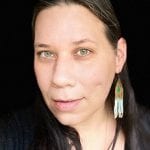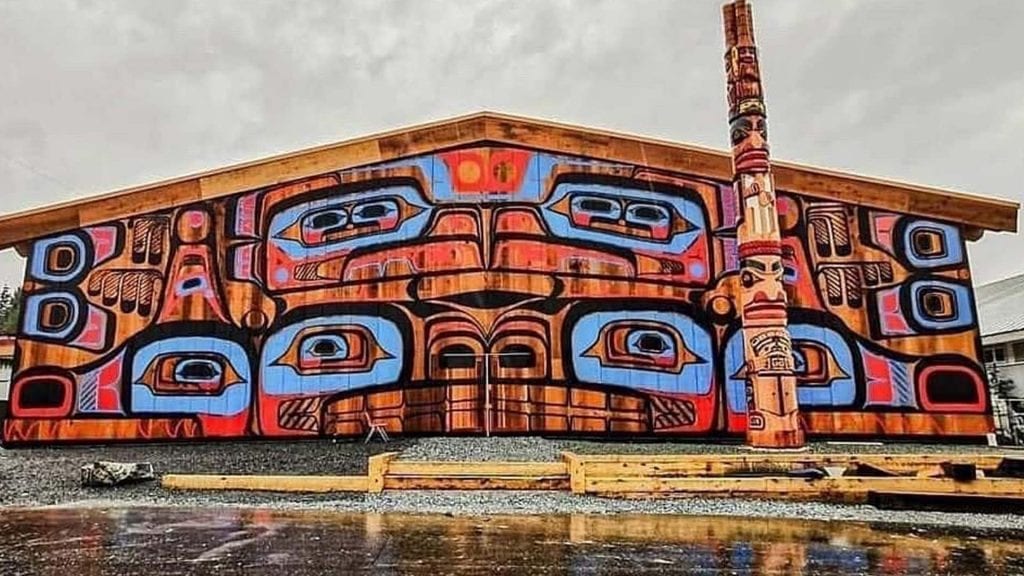
Gvúkva’áus Haíɫzaqv (Heiltsuk big house). Photo by Charity Gladstone
It’s a quiet morning in Waglisla, a Haíłzaqv (Heiltsuk) village accessible only by boat or plane, on the Northwest Coast of B.C.
It’s still dark as a handful of community members jog lightly, gathering in front of the Gvúkva’áus Haíłzaqv (Heiltsuk big house) before their run.
The group will run together until the first light of dawn shines on the big house front.
Císḷáṇugvṇƛa q̓vílákṃ (taking care of myself) is the name of an initiative organized by the Kunsoot Wellness Center, an ancient Haíłzaqv village site that has been turned into place of land-based wellness programming.
The runners are training for a virtual fundraising walk/run, which is set for March 21 to 27.
The run is open to anyone who wants to support the growth of Kunsoot Wellness Centre, the event registration page explains. For those who aren’t able to walk or run, another way to participate is to sponsor a runner.
‘Qátuw̓as Jessica Brown is one of 17 sponsored runners committed to running. While most participants will be running or walking 5 to 10 kms, the sponsored runners have selected their own distance goal and are asking people to donate to their journey.
“I’ve been sharing my whole training process via social media, to promote awareness around Indigenous wellness,” ‘Qátuw̓as tells IndigiNews. “I’m sharing for accountability and motivation, basically giving ripples of inspiration.”
Training for the socially distanced run began Jan. 22. ‘Qátuw̓as says the experience so far has been healing. She began training for her goal of 21 km (a half marathon) when she was in self-isolation after returning home to Bella Bella.
“It helped me through a hard moment of having to be by myself. And it helped me connect with other people because I began to share my process,” ‘Qátuw̓as says. “That’s kind of the point of it — we wanted to know how we could encourage people to move in good ways, not just people who are already active, but all spectrums.”
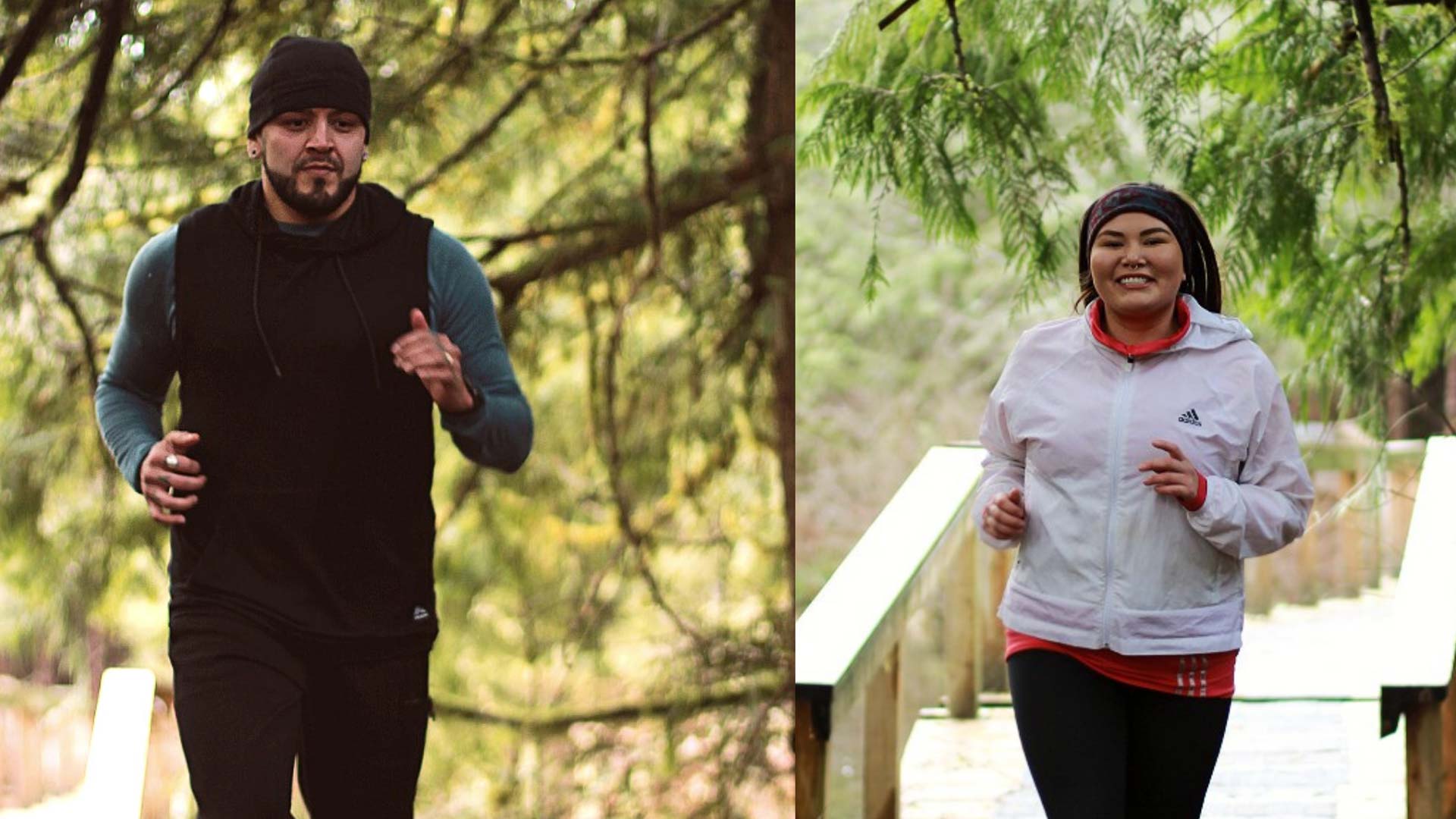
‘Qátuw̓as grew up in a family that valued connection to the land, and she grew up going to a cultural camp an hour and a half boat ride outside her community. The idea that funding could help support more community members to connect to cultural wellness programming inspires ‘Qátuw̓as in her training.
“I’m fortunate to come from a family who really prioritizes connection to land and how our healing comes from our home territory, waters, and animals,” ‘Qátuw̓as says.
“I’ve been recognizing on my own self healing journey, that you can’t heal in isolation, that you actually need to be able to tell your story. You need to be able to connect with your community, your people, your family, and that’s what we’re actively trying to do in the Haíłzaqv Nation, as we try to heal together and on multiple avenues.”
Kunsoot Wellness Project coordinator Erin Wilson asked ‘Qátuw̓as to be a sponsored runner as a creative fundraising idea.
“I sought out like minded people I knew would back up my idea and make the vision reality,” says Wilson.
“I wanted something all inclusive that would promote wellness, while supporting wellness at Kunsoot Wellness Centre. A virtual run/walk made it accessible for our Haíłzaqv kin off reserve and to anyone wanting to support Haíłzaqv wellness.
“A run seemed like a fun way to get our people involved, excited and working on their physical wellness.”
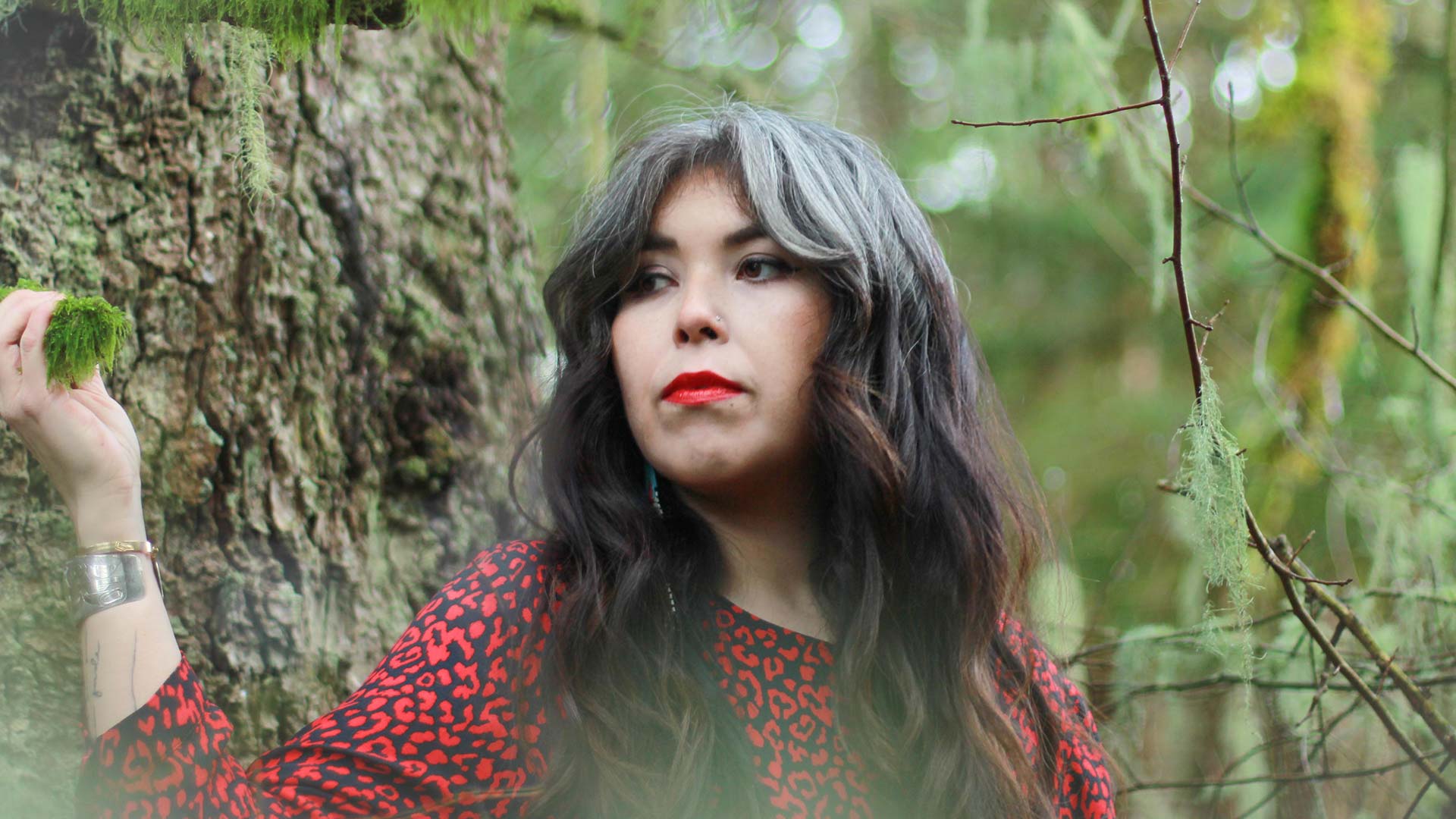
Wilson says her idea was partly inspired by First Nations Health Authority’s 30×30 fitness challenge, which encourages 30 minutes of activity a day, which made its way to Bella Bella a few years back.
“I wasn’t living here at the time, but seeing the hype around it was super inspiring and it made me happy to see my community creating healthy habits for themselves,” Wilson says.
The running event is open to Haíłzaqv on reserve and off reserve members, and anyone who wants to support the initiative. People can get involved on social media and share their own progress and fitness motivations.
Participants can complete their final goal anytime throughout the week of March 21. Due to COVID-19, Wilson decided to have the run open several days and precautions in place mean the runners will run on individual schedules, instead of a group running together. It’s the first in what will become an annual event, says Wilson.
“We want this to be an annual fundraiser and aim to have a marathon post COVID madness.”
‘Want to heal with me?’
‘Qátuw̓as is joined by 16 other sponsored runners who pledge anywhere from one, 10, to 42 kilometers. To join, it costs between a sliding scale of $10 to $60. So far, another 40 are joining in the “First Tier” 5K to 10K runners and walkers of all ages. First tier is open registration until Friday Feb. 5.
A school counselor is putting out a challenge for students to join this week, says Wilson.
Even an Elder’s tier has been added, to challenge Elders to get outdoors and walk for one hour per week, or train towards a one kilometer to five kilometer walk, walkers’ choice, Wilson explains.
‘Qátuw̓as says she reached out to her family members, asking, “Hey, want to heal with me?”
“I ended up getting five of us, my ǧáǧṃ́ (gran) and three other people from our family,” she says. “People need and want to have these conversations and sometimes we just need somebody who’s willing to be vulnerable to spark them up.”
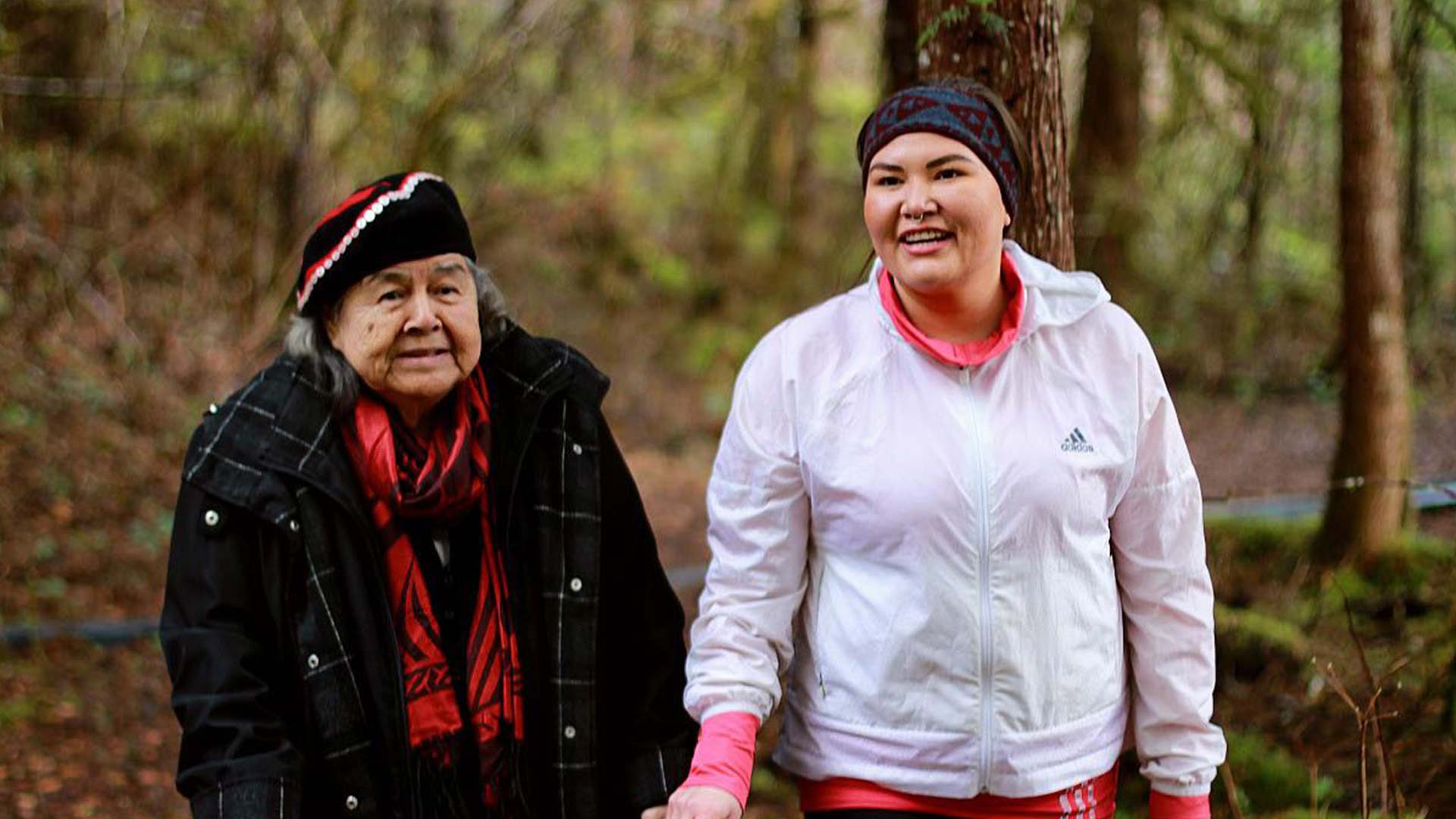
‘Qátuw̓as says the initiative encourages people to get out of the house, breathe in fresh air, put their feet back on the earth, and move their bodies in a good way. One of the things she is understanding more deeply is the teaching that “with great light comes great darkness.”
“We have great light here. We have so much goodness,” she says, “Our culture, because we’re isolated, is still very much intact. And we still have a majority of families who are able to harvest food and to live in that relationship with land.
“But with great light comes great darkness. We have a history of colonization and it’s alive and well here in our community. And so I’m really proud of Kunsoot wellness society for working to make changes and motivating people and myself included. I’m really happy that I come from this community and that opportunities like this exist and hopefully inspire other communities.”
‘Qátuw̓as explains how her people used to be divided into five tribes, but are now amalgamated into one.
“We were estimated anywhere between 20,000 to 50,000 people before smallpox hit our population,” she says. “We were decimated by 99.9 per cent. And we went down to just over 300 people.”
The reality of this history is emphasized as the Nation takes COVID-19 precautions with complete gravity.
“We’re living in a second pandemic here, and the effects from colonization and the real, deep rooted trauma that exists in our community because of that,” she says.
“I have to find avenues to continue with my healing, to continue with my wellness. It’s not always simple. Sometimes it’s really hard, but it keeps me motivated so that I can help to inspire other people.”
‘There’s another way’
Jefferson Brown, a personal trainer hired by the health centre at Bella Bella, is another participant in the run. He says his coaching involves preparing for the inner shifts that happen when physical changes take place in a body.
“I’m more interested in helping people grow in our community, because for a long time there wasn’t any positive outlet and there wasn’t somebody willing to show that there’s another way,” he says.
“The reason why this run for wellness project is so important to me is because I’ve struggled with addiction. I’m a recovering alcoholic, a little over 250 days sober. And there’s a lot of times where I felt alone and I didn’t feel like anybody else had my best interests at heart.”
Brown says he’s working hard to bridge the gap between physical fitness, what it means to be “well.”
“The fact that there’s so many people from this community involved in this project is really big to me. And I feel like it’s going to open a lot of eyes,” he says.
Brown coaches two open level run/walk sessions per week. Wednesday morning at 6 a.m. and every Thursday evening at six pm, starting outside the big house.
Astrid Wilson is a Haíłzaqv youth who has also committed to 21 km. She says her motivation for being involved is about finding ways to be positive and making healthy choices.
As a youth who has always been active in sports, she has felt the impact of COVID-19 on herself and other youth.
“We haven’t been able to play sports in our community ever since COVID happened. And it’s really taken a toll on a lot of our youth, including myself, because that’s where we get our drive from,” Wilson says.
“That’s where we can feel like we’re striving for something. And we can feel like we know we’re creating a formula of change where we’re not just another statistic.”
Wilson says she finds comfort and healing in running and being active in her community.
“Just being able to run is that feeling of like your body’s alive and you’re living and, you know, there’s so much more where you can just create change,” she says.
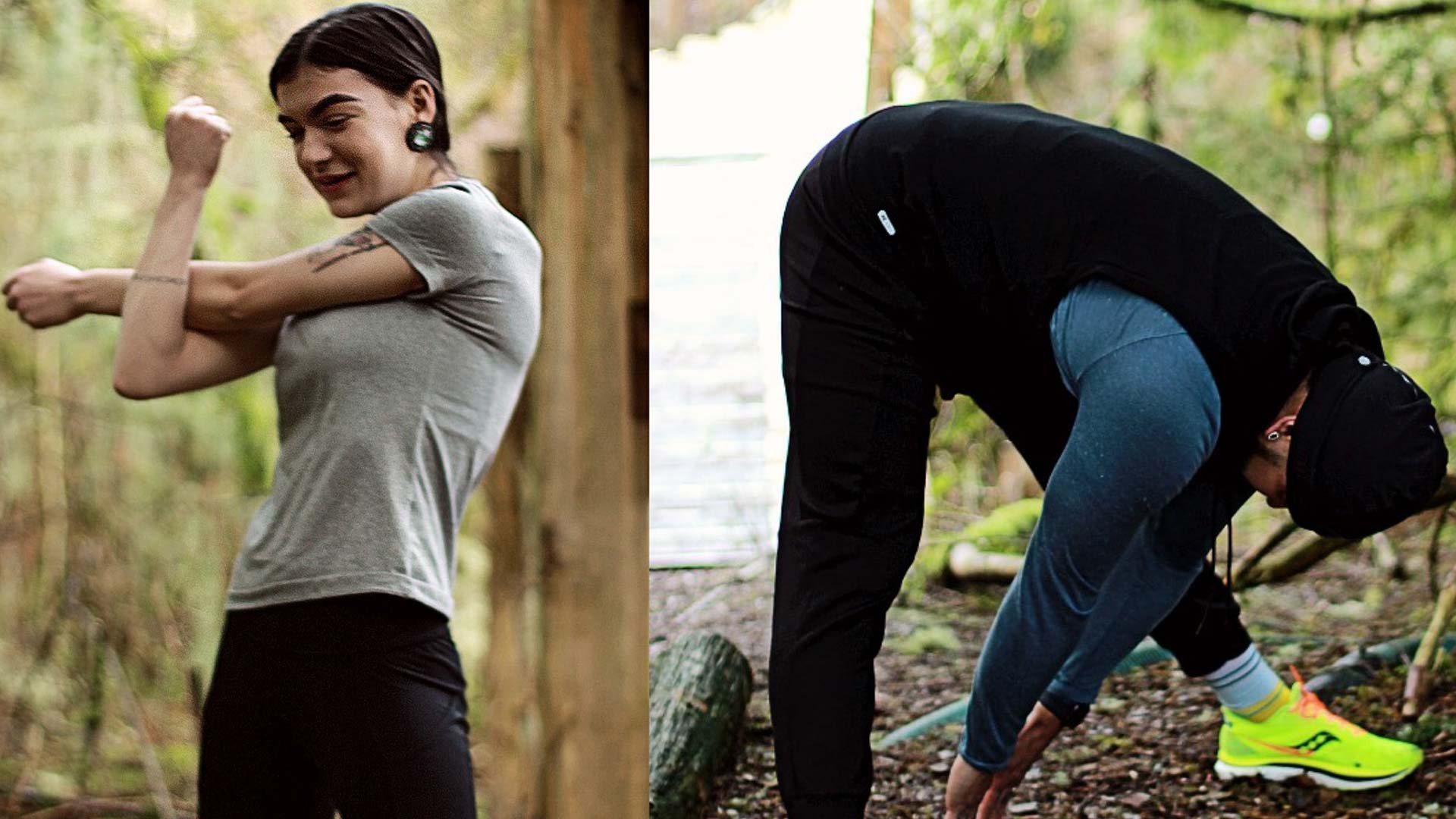
Wilson invites people of all fitness levels to join, whether it’s a sponsored runner or a walk.
“Finding light on the darker days during a global pandemic can be extra tough,” she says.
“You’ve got to remind yourself to be gentle with yourself and others around you. Running is so good for your wellbeing. So if you have the chance to just get out, even if it’s just a walk, it’s not like there’s an expectation, everybody goes at their own pace and their own levels.”
Donations to sponsor runners are being accepted until the end of March, to [email protected]. Any other runners or walkers, at any fitness level, can join by registering at this link.
For ‘Qátuw̓as, the project stems beyond her own community.
“I’m proud of my Nation. I’m proud that we are actively recognizing that intergenerational trauma is not only in our community, but across Indigenous country, and that we’re doing something about it,” she says.
Wilson invites people of all fitness levels to join, whether it’s a sponsored runner or a walk.
“Finding light on the darker days during a global pandemic can be extra tough,” she says.
“You’ve got to remind yourself to be gentle with yourself and others around you. Running is so good for your wellbeing. So if you have the chance to just get out, even if it’s just a walk, it’s not like there’s an expectation, everybody goes at their own pace and their own levels.”
Donations to sponsor runners are being accepted until the end of March, to [email protected]. Any other runners or walkers, at any fitness level, can join by registering at this link.
For ‘Qátuw̓as, the project stems beyond her own community.
“I’m proud of my Nation. I’m proud that we are actively recognizing that intergenerational trauma is not only in our community, but across Indigenous country, and that we’re doing something about it,” she says.




